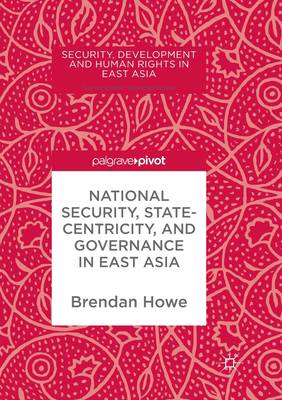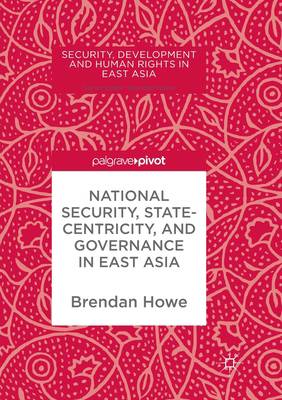
- Afhalen na 1 uur in een winkel met voorraad
- Gratis thuislevering in België vanaf € 30
- Ruim aanbod met 7 miljoen producten
- Afhalen na 1 uur in een winkel met voorraad
- Gratis thuislevering in België vanaf € 30
- Ruim aanbod met 7 miljoen producten
Zoeken
National Security, Statecentricity, and Governance in East Asia
€ 58,45
+ 116 punten
Omschrijving
This book assesses the extent to which an emphasis on national security and prioritization of state interests has dominated governance policy-making in Northeast and Southeast Asia, at the expense of human security, human development, and human rights. The findings are that in many cases, there are embedded structural obstacles to achieving human-centered governance objectives in the region. These relate to the role of the military, historical authoritarian legacies, and new authoritarian trends. Contributors examine not only the most obvious instances of military domination of governance in the region (North Korea with its "Military First" philosophy, Thailand since the 2014 coup, and Myanmar with its long history of military rule), but also less well known examples of the influence of conflict legacies upon governance in Cambodia, Timor-Leste, and Laos, as well as the emergence of new reservoirs of power and resources for the forces of authoritarianism.
Specificaties
Betrokkenen
- Uitgeverij:
Inhoud
- Aantal bladzijden:
- 160
- Taal:
- Engels
- Reeks:
Eigenschappen
- Productcode (EAN):
- 9783319865218
- Verschijningsdatum:
- 23/08/2018
- Uitvoering:
- Paperback
- Formaat:
- Trade paperback (VS)
- Afmetingen:
- 148 mm x 210 mm
- Gewicht:
- 213 g

Alleen bij Standaard Boekhandel
+ 116 punten op je klantenkaart van Standaard Boekhandel
Beoordelingen
We publiceren alleen reviews die voldoen aan de voorwaarden voor reviews. Bekijk onze voorwaarden voor reviews.










